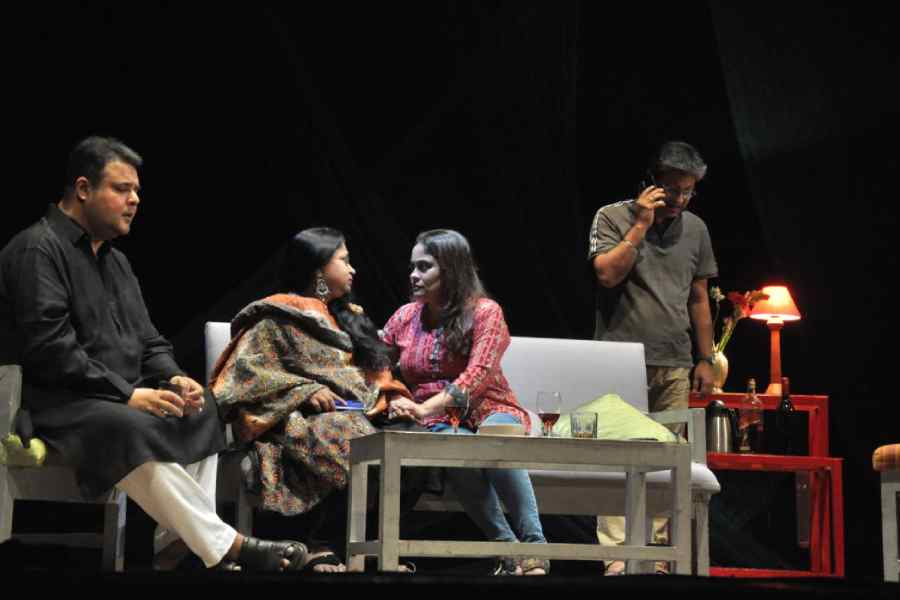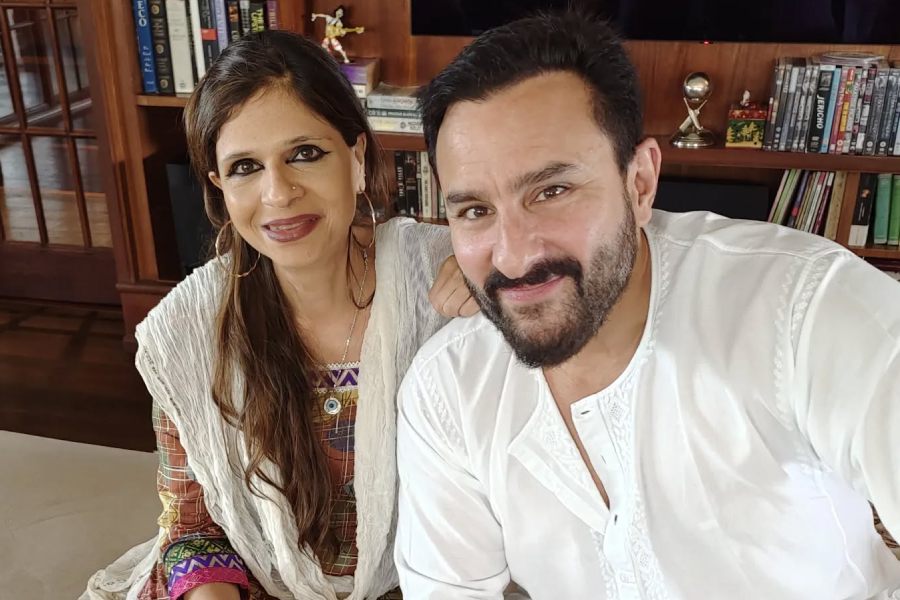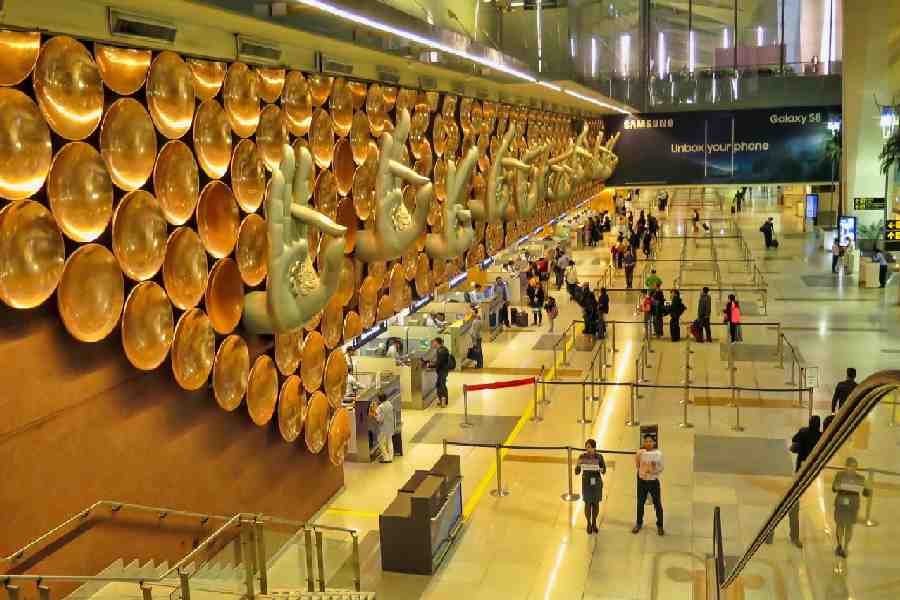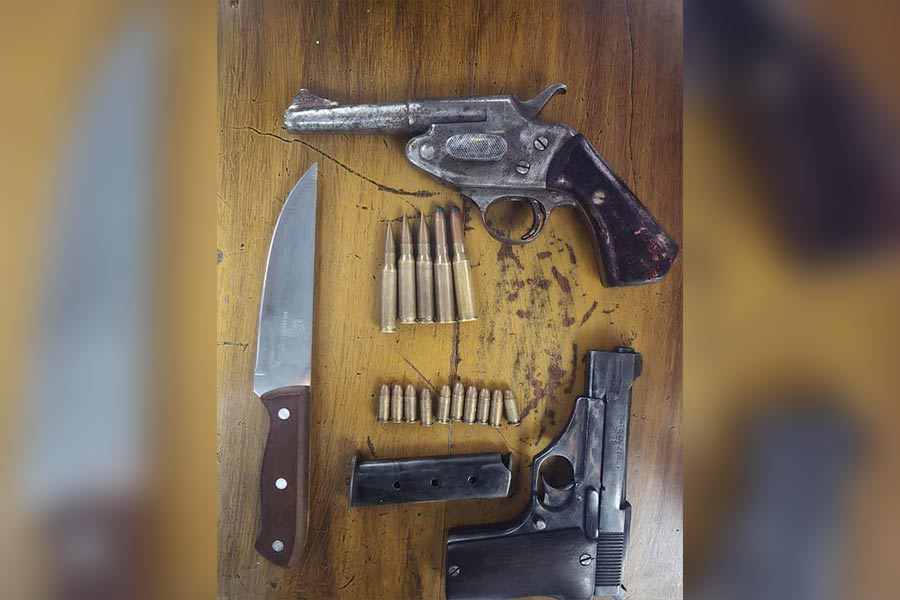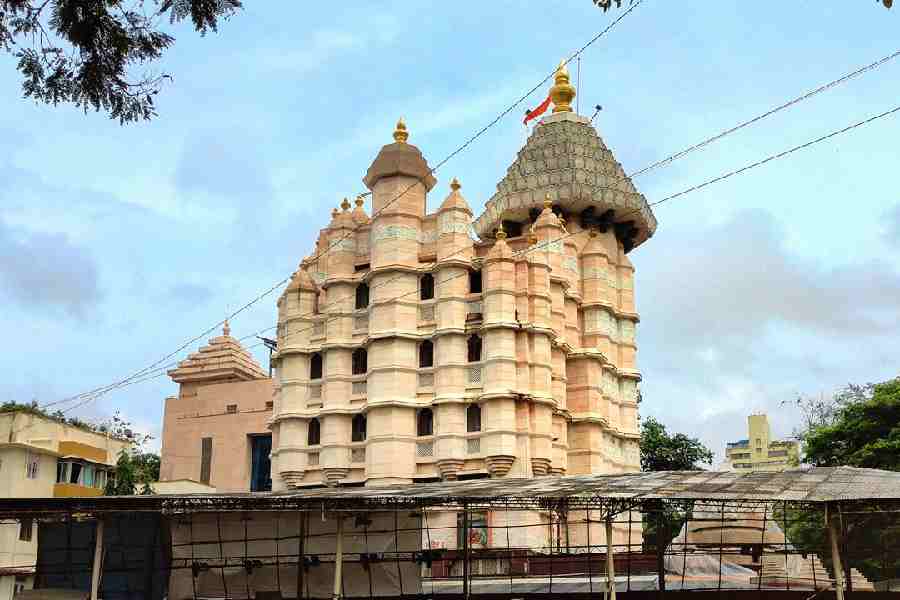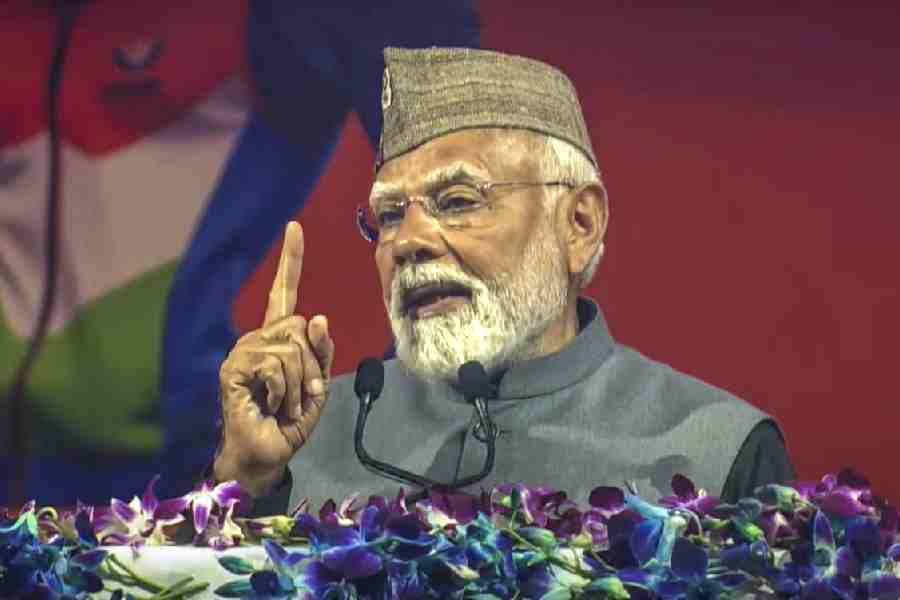The 15th edition of Nandipat’s Narir Mancha sprang a few surprises. Although the national feel was almost missing and the Bangladesh connection was crying out for a renewal, the festival reached out to several generations of women directors and struck a balance between the proscenium and the intimate formats.
It opened with Charbak’s Charane Sheba Laage (written and directed by Kheyali Dastidar) and was followed by the premiere of Ensemble’s Bhiti. The veteran, Sohag Sen, returned to Bertolt Brecht, adapting The Jewish Wife and The Spy. Titled Bhiti (Fear), Sen’s adaptation stitches these two domestic dramas and reworks them to suit contemporary Calcutta. Essentially Bengali in character, but metropolitan in effect, the first works on the simmering tension between a multiethnic couple after the husband (Kaushik Bose), a government officer, begins losing his grip on his job when the wife (Soma Mukherjee), a civil rights activist, starts opening up before the electronic media. Suddenly, religious identities, although reflected only in names and surnames, emerge from nowhere. In the second, an otherwise happy couple (Sujoy Prasad Chattopadhyay and Sutapa Ghosh) finds their adolescent son (Rishav Pandey) going astray. The stories meet when the couples exchange notes at drawing room meetings. In both the cases, the political ecosystem in present-day West Bengal assumes the driver’s seat. Spread over 75 minutes, Bhiti catches the pulse of our fractured times. The suggestive set, with its lampshades, flower vases and interchangeable bar counters, marks the minimalism that is Ensemble’s signature style these days. A credible performance from the cast, with a mature Mukherjee at the centre, makes Bhiti a compelling watch.
Among the other works showcased at Narir Mancha, Rangroop’s Manmoyee Girls’ School (directed by Sima Mukhopadhyay) is a quaint romantic comedy reminiscent of the lost world of public theatre in Calcutta. Kathak Performing Repertoire’s Khurima, Naya Roopkatha’s Parshochoritro, Krishnanagar Jiboner Aikatan’s Ektu Agun De, Centre Stage’s Patni O Preyoshi, A Bong Positive’s Sada Sada Kala Kala and Agartala-based Natyabhumi’s Ami Madhabi Bolchhi completed the picture.

